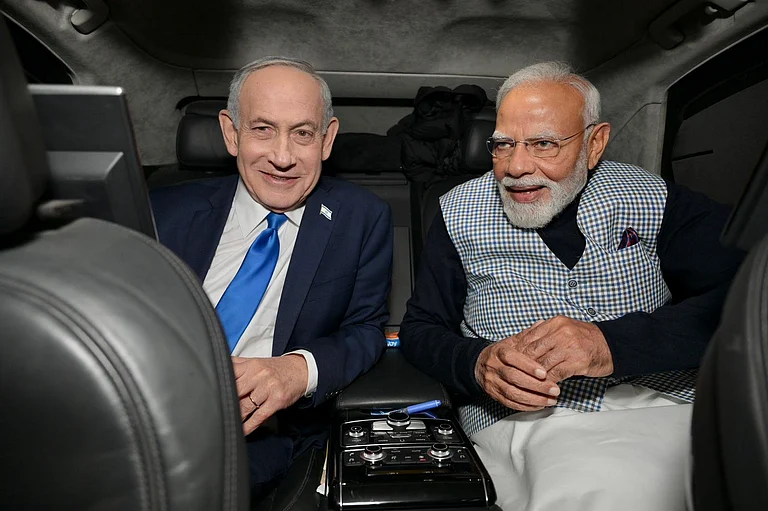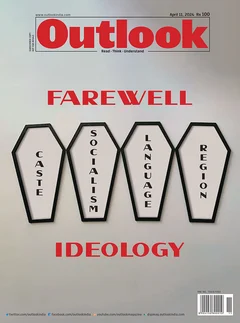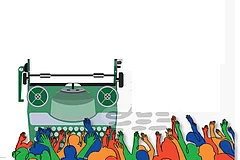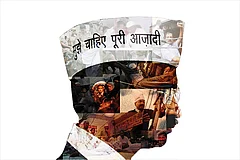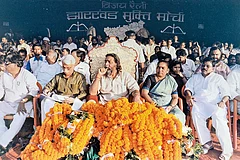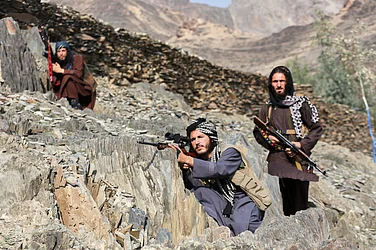Many years ago, in the mid-1990s, when I was in Amsterdam, I hired a cab after dinner at a friend’s place. It turned out the driver was an Indian immigrant. Or, so it seemed. I asked him, and he said his birthplace was Surinam. Then he began speaking in Hindi. The way he spoke was almost musical.
We chatted while he drove, and exchanged some information about what I was doing, where in India his ancestors hailed from (it was Bihar), and whether he had ever visited India (he hadn’t). Our little journey ended, and I paid him the fare. As I got out of the cab, he looked at me and said: “Achha laga aap se mil kar, khuda hafiz.” It was soft and mellifluous, like the rest of his sentences. That was the last time anyone spontaneously wished me with those words. I wished him back, and, of course, that was the last I saw of him.
***
In the winter of 1972, I spent some months in London, where I had been dispatched by my parents after my disillusionment with the Naxalite movement. My uncle was the Indian ambassador to Austria then, and I planned to visit him and my aunt in Vienna. I arrived in Paris on December 30, stayed a night with a friend, and caught the Orient Express, then still operating its famous journey from Paris to Istanbul.

I had an unreserved ticket and very little baggage. I had hoped to get a seat but was obliged to board without one. I spent most of the journey in the corridor, sitting on the floor next to the little vent at the bottom of the compartment door nearest me, to warm my freezing limbs—December in central Europe is very cold!
It was only late next morning, some way past Munich, that I got a seat. I was exhausted. I didn’t have any food, nothing to drink, and I had to preserve my meagre cash to catch a taxi to the Indian embassy in Vienna. On the seat opposite me, there sat a man, possibly in his early 30s, who greeted me with a smile. It turned out he was a doctor, an Iranian, also going to Vienna. But as he spoke French, we could only manage a sparse conversation. I think his name was Mohsin, but I’m not sure. We reached Vienna in the afternoon and said our goodbyes. I made my way towards the station exit to show my ticket and passport, and stood in the queue, my knees sagging from cold and hunger. Suddenly, Mohsin appeared by my side, with something wrapped in a paper napkin: it was a hot sandwich. He gave it to me wordlessly, smiled and melted into the crowd. I could barely say thank you. Never was a sandwich more welcome.
***
In 1979, I visited some close friends in Australia and went along with them on a trip to Fiji, which was the home of my hostess, a Fijian Indian. We stayed in Suva, the capital. One day, they decided to visit an old friend in a village in the interior of the main island of Viti Levu. The journey included a bus ride and a motorboat navigating through water pathways in a mangrove delta, with thick foliage hanging over close mud banks. At the village, we were greeted by their friend Orea, a one-time civil servant from the Fijian bureaucracy. He was a big and cheerful man. We roamed around the village—which consisted of wooden houses on stilts to protect them from water-logging—and exchanged greetings with his neighbours. By late afternoon, it was time to get back to Suva. But it felt so nice being there that I expressed the wish to remain for a while. Everyone said why don’t you stay the night and get back tomorrow.

So that’s what happened. My friends took the boat back, and I hung around with Orea. As evening drew near, we sat in a large room in his wooden hut. A few children in their early teens came and sat on the floor, and then a welcoming ritual unfolded. A large plastic bucket of drinking water was placed on the floor, and a packet of brown powder emptied into it. The powder was made of the dried root of a plant called kava, a staple with Fiji islanders. The mixture had to be stirred continually. A half-shell of a coconut was passed around, and the little gathering clapped hands with every refill. Everyone drank until the bucket was empty, and meanwhile, the children began to sing folk songs with one of them playing a guitar. This carried on for an hour or more when I found myself nodding off into a calm stupor—apparently the normal reaction to a round of kava, which is non-alcoholic, and also soporific. I lay down on a mattress and drifted into a deep sleep.
Strangeness disappears with the merest gesture—a helping hand stretched out in desperate straits, a night spent in a remote village on the other side of the globe, and with a warm sandwich.
The next I knew it was early morning and I blinked my eyes at the sunlight streaming through the windows. Beautiful voices were singing choral music in a nearby church, also housed in a hut on stilts. The harmony was angelic. The only other sounds were birdsong and the susurrus of breezes wafting through trees. I had slept so deeply that I could scarcely believe it was morning. I breakfasted on delicious fresh fruit, chatted a bit more with my host, and left in time to catch the next bus. I never met Orea again, but can say without exaggeration that it was one of the most enchanting experiences of my life.
***
This one is not so pleasant. In 1982, I was involved in an agitation in my college of employment, Ramjas. It had to do with the victimisation of the college gardener, Sita Ram, on whose behalf I had sat on a nine-day hunger strike. It’s a long story, but on February 16, I was followed (I rode a scooter to work), and on a lonely part of the journey adjoining Qudsia Park, a car suddenly screeched to a halt in front of me and four men with iron rods got out. I tried to turn around but skidded and fell. In seconds, they were upon me, hitting me on my legs and face. It lasted less than a minute, because a vehicle drove by, and the men ran away. My leg was fractured and my face smashed, with many teeth knocked out. I lay there bleeding, when a policeman on a scooter stopped, looked at me, and asked a pedestrian whether there had been an accident. He said no, this man has been assaulted. Both then disappeared.

I lay on the road for several minutes when a Fiat stopped beside me. There was a middle-aged couple inside. The man got out and spoke to me with concern, but I couldn’t speak. Then he gently put me in the back seat and drove me to Bara Hindu Rao hospital, on top of the Ridge. Once there, I heard the couple telling the doctors they had picked me up in that condition. I was moved to the emergency room and I never saw them again, nor discovered their identities. But their act of kindness was one that I can never forget or ever repay.
***
My last vignette is an account of two encounters with the same person. I first met Mari Fitzduff in Helsinki in 1990, at the European Nuclear Disarmament conference, conducted in Helsinki and Tallinn, Estonia. One of the sessions was about religion and conflict, where I heard an Irish woman speak about the violence between Catholics and Protestants.
I suddenly realised I couldn’t make out to which denomination she belonged. She was passionate about non-violence and peace, not about ‘her’ faith. There was not a trace of partisanship in her speech. After the session, I approached her, and we walked briefly in a park outside the venue. It was a meeting of minds.
Once the conference was over, I never imagined we might meet again. But in 2000, I visited the city of Derry in Northern Ireland for a seminar on peace-building. It was hosted by Mari. In the city itself, an atmosphere of animosity was palpable, with sheets of steel dividing streets and localities from one another; and giant murals depicting violent defiance. Even pavements were painted in political colours.
Nonetheless, my brief sojourn was marked by an experience of great friendship and warmth from the Irish, and I said so to my hostess. We had no time for personal conversation, but after the conference was over, Mari saw me off at the bus to Belfast. Just before boarding, I couldn’t help saying something that had lingered in my mind the entire trip. I said to her—you Irish are such wonderful, generous and musical people. My appreciation was loaded with an unspoken question, and her intuitive response told me much about India. We love strangers, Dilip, she said, except our own. I could have hugged her then. Our own strangers—three words loaded with history and tragedy. The Mahabharat, Karbala, Wagah, Palestine— it goes on. I never met Mari again, but I’ll never forget her words.
Sometimes we meet people just once, or fleetingly. But they touch you with deep friendship. There is something profound in such meetings, for they are recollections. You find something that was already there. Strangeness disappears with the merest gesture, a helping hand stretched out in desperate straits, a night spent in a remote village on the other side of the globe, with a warm sandwich, and with three words.
Thank you, Mari, Orea, and Mohsin; and the couple who lifted me from the road on February 16, 1982. And, hello again, my nameless cab driver from Surinam. Khuda hafiz, my dear friends. May God protect you.
(Views expressed are personal)
MORE FROM THIS ISSUE
Dilip Simeon is a public intellectual and scholar of the history of labour
This appeared in the print as 'Khuda Hafiz'








